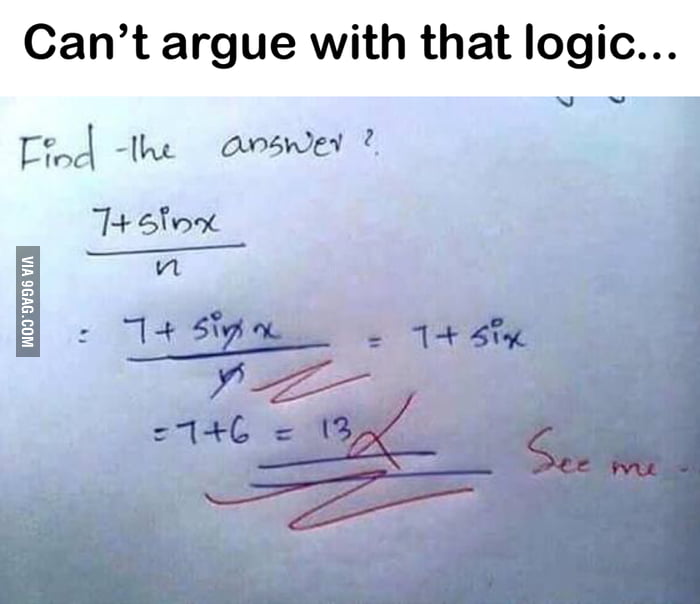There have been a time when the T wars here were much more pronounced, I realize, but I still feel I need to post that, even though they've been subdued as of late. All I ask of you is that you read all of this. Thanks in advance.
It often happens that Ti types call Te out on being "mechanical", "applying methods", "engineering over creativity" (see a perfect example of this bias). As often they themselves hear Ti is "rules", "dogma", "categorizing for the sake of categorizing" (I'm missing an adequately absurd example here). In fact, it seems as if those two are forever at each other's throats.When the objective orientation receives a certain predominance, the thinking is extraverted. This circumstance changes nothing as regards the logic of thought -- it merely determines that difference between thinkers which James regards as a matter of temperament. The orientation towards the object, as already explained, makes no essential change in the thinking function; only its appearance is altered. Since it is governed by objective data, it has the appearance of being captivated by the object, as though without the external orientation it simply could not [p. 432] exist. Almost it seems as though it were a sequence of external facts, or as though it could reach its highest point only when chiming in with some generally valid idea. It seems constantly to be affected by objective data, drawing only those conclusions which substantially agree with these. Thus it gives one the impression of a certain lack of freedom, of occasional short-sightedness, in spite of every kind of adroitness within the objectively circumscribed area.What I am now describing is merely the impression this sort of thinking makes upon the observer, who must himself already have a different standpoint, or it would be quite impossible for him to observe the phenomenon of extraverted thinking. As a result of his different standpoint he merely sees its aspect, not its nature; whereas the man who himself possesses this type of thinking is able to seize its nature, while its aspect escapes him. judgment made upon appearance only cannot be fair to the essence of the thing-hence the result is depreciatory. But essentially this thinking is no less fruitful and creative than introverted thinking, only its powers are in the service of other ends. This difference is perceived most clearly when extraverted thinking is engaged upon material, which is specifically an object of the subjectively orientated thinking. This happens, for instance, when a subjective conviction is interpreted analytically from objective facts or is regarded as a product or derivative of objective ideas. But, for our 'scientifically' orientated consciousness, the difference between the two modes of thinking becomes still more obvious when the subjectively orientated thinking makes an attempt to bring objective data into connections not objectively given, i.e. to subordinate them to a subjective idea. Either senses the other as an encroachment, and hence a sort of shadow effect is produced, wherein either type reveals to the other its least favourable aspect, The subjectively orientated thinking then appears [p. 433] quite arbitrary, while the extraverted thinking seems to have an incommensurability that is altogether dull and banal. Thus the two standpoints are incessantly at war.
I know a lot of you say you read Jung. I know a lot of you don't care. But for once, pay attention to what he says.
For thou art living up to his words.



 Reply With Quote
Reply With Quote




 is a subjective ethical disposition originating from and authenticated by the objective sentiments of a given milieu.
is a subjective ethical disposition originating from and authenticated by the objective sentiments of a given milieu. is a subjective ethical disposition that may have objectively-derived aspects, but the source of its authenticity ultimately begins and ends with a given subject's idiosyncratic sentiments.
is a subjective ethical disposition that may have objectively-derived aspects, but the source of its authenticity ultimately begins and ends with a given subject's idiosyncratic sentiments.

 : ↪ objective evidence → [subjective inference → objective evidence → subjective inference → subjective inference…] ⇒ judgment.
: ↪ objective evidence → [subjective inference → objective evidence → subjective inference → subjective inference…] ⇒ judgment. : ↪ subjective inference → [objective evidence → objective evidence → subjective inference → objective evidence…] ⇒ judgment.
: ↪ subjective inference → [objective evidence → objective evidence → subjective inference → objective evidence…] ⇒ judgment. No, I did use those terms for Ti and Te—you're misunderstanding.
No, I did use those terms for Ti and Te—you're misunderstanding.

